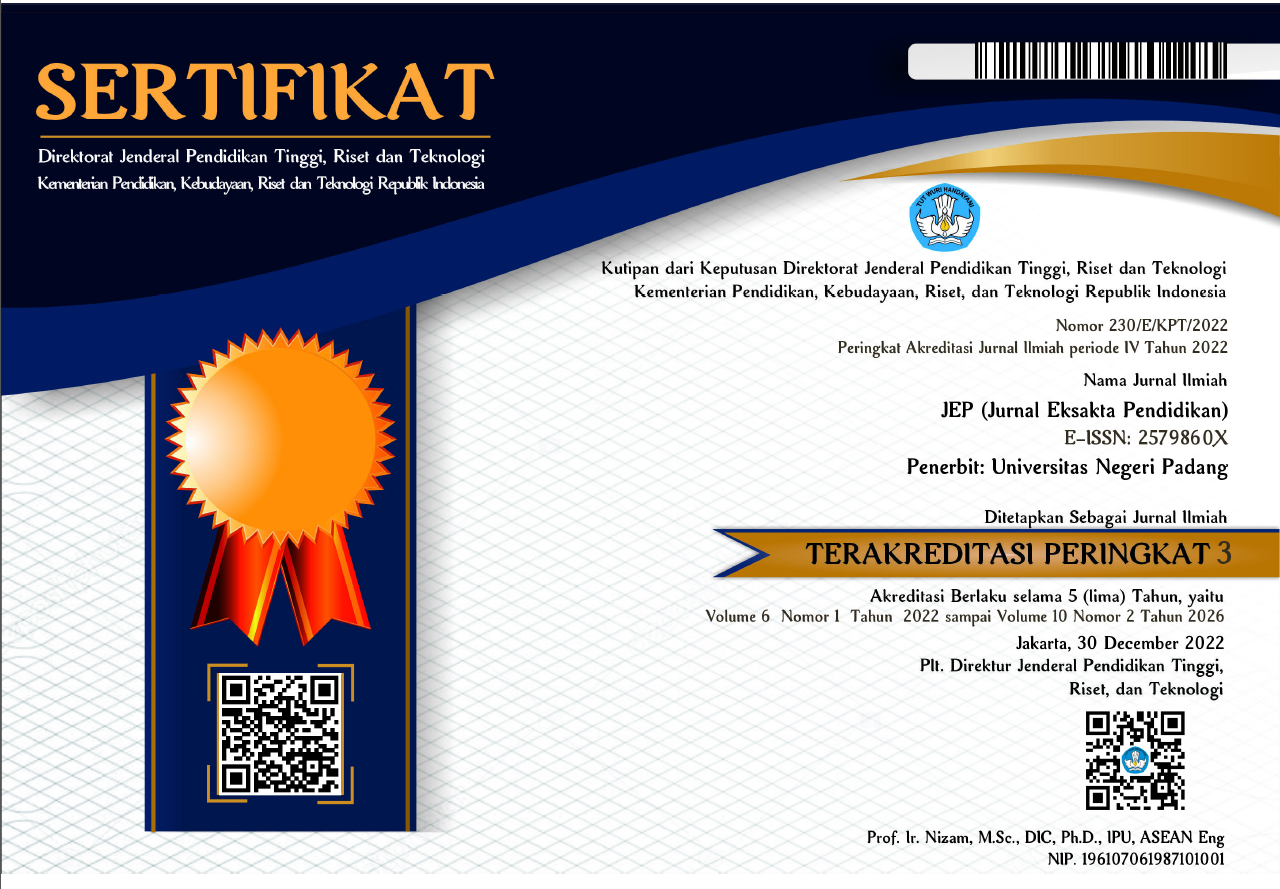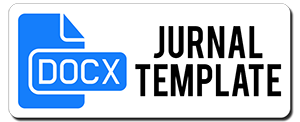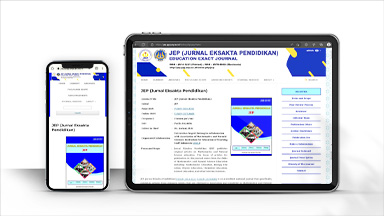Analisis Kesiapan Peserta Didik SMA Negeri 8 Padang Menghadapi Revolusi Industri 4.0.
Abstract
Industrial Revolution 4.0. is a time when human life is very dependent on the information base. This forces everyone to be ready, and have global competitiveness. The trick is to be able to adapt to technological developments, be able to use it, and be able to sort out the appropriate functions of technology, so that their use is effective. All aspects of life are affected, including formal education in high school. Here, the teacher plays an important role. Carry out learning with the orientation towards proficient technology, and wisely use technology. However, the implementation of the learning certainly requires basic thinking, how much ability students have. There are no data that reveal the readiness of students in secondary schools to face the Industrial Revolution 4.0, including in SMA Negeri 8 Padang. Thus, we conducted this descriptive study. We used a questionnaire, JRZ-IR4.0, to collect data from 603 students. Then, the data is analyzed and concludes the students' readiness. The results showed that the level of student readiness was quite ready, with an average of 3.18 and 3.15 points. These results form the basis for considering the direction of the learning process.
Downloads
References
Ahn, S., & Chae, K. (2016). Correlation Analysis on ICT Literacy Level and Difference of Habit to Use ICT. Journal of The Korean Association of Information Education, 20(3), 303–312.
Anggraini, H. (2019). Penguatan Sikap Komitmen Siswa terhadap Integrasi Nasional. In Forum Ilmu Sosial (Vol. 46, pp. 28–41).
Arikunto, S. (2010). Prosedur Penelitian, Suatu Pendekatan Praktik. Jakarta: Rineka Cipta.
Darmadi, H. (2016). Tugas, Peran, Kompetensi, dan Tanggung Jawab Menjadi Guru Profesional. Edukasi: Jurnal Pendidikan, 13(2), 161–174.
Einzig, H. (2017). The Future of Coaching: Vision, Leadership and Responsibility in a Transforming World. Routledge.
Fauziah, G., & Lestari, A. W. (2018). Pembudayaan Gerakan Literasi Informasi Siswa Tingkat Sekolah Dasar di Tanggerang Selatan. Edulib, 8(2), 167–179.
Flory, M., Essers, J., & Wankel, C. (2016). Developing Cross-Cultural Managerial Skills Through Social Media. Journal of Organizational Change Management.
Gralewski, J., & Karwowski, M. (2019). Are Teachers’ Ratings of Students’ Creativity Related to Students’ Divergent Thinking? A Meta-analysis. Thinking Skills and Creativity, 33, 100583. https://doi.org/https://doi.org/10.1016/j.tsc.2019.100583
Harahap, A. R., & Harahap, M. S. (2018). Efektifitas Penggunaan Constructivism Approach Terhadap Kemampuan Komunikasi Matematis Siswa Kelas XI SMA Negeri 7 Padang Sidimpuan. MathEdu (Mathematic Education Journal), 1(2), 1–6.
Hidayatullah, M. S., & Zwagery, R. V. (2018). Efektifitas Pelatihan Goal Setting Untuk Meningkatkan Komitmen Tugas pada Siswa SMPN 1 Martapura Timur. Jurnal Ecopsy, 5(1), 16–21.
Holmes, N. G., Wieman, C. E., & Bonn, D. A. (2015). Teaching Critical Thinking. Proceedings of the National Academy of Sciences, 112(36), 11199–11204.
Huber, C. R., & Kuncel, N. R. (2016). Does College Teach Critical Thinking? A Meta-Analysis. Review of Educational Research, 86(2), 431–468.
Laisema, S. (2018). Development of Collaborative Blended Learning Activity on Mobile Learning to Enhance Undergraduate Students’ Collaboration Skills. Veridian E-Journal, Silpakorn University (Humanities, Social Sciences and Arts), 11(4), 682–699.
Lestari, M. D. (2016). Analisis Kemampuan Guru Biologi SMA di Kota Semarang Dalam Membuat Rencana Pelaksanaan Pembelajaran (RPP) Berdasarkan Kurikulum 2013. Universitas Negeri Semarang.
Lewa, I. W. L., Susanto, H., & Marwoto, P. (2018). Implementasi Model Pembelajaran Inkuiri Terbimbing pada Kemampuan Pemecahan Masalah Fisika dan Kemampuan Komunikasi Siswa SMP. UPEJ Unnes Physics Education Journal, 7(2), 44–51.
Lie, A., & Harjanto, I. (2018). Seberkas Cahaya di Tanah Harapan.
Magen-Nagar, N., Shachar, H., & Argaman, O. (2019). Changing the Learning Environment: Teachers and Students’ Collaboration in Creating Digital Games. Journal of Information Technology Education: Innovations in Practice, 18, 61–85.
Majumdar, R., Yang, Y. Y., Li, H., Akcapinar, G., Flanagan, B., & Ogata, H. (2018). GOAL: A System to Support Learner’s Acquisition of Self Direction Skills. Asia-Pacific Society for Computers in Education (APSCE).
Mardhiyah, K. Z., & Indianti, W. (2018). Mediasi Konsep Diri Akademik Dalam Peran Regulasi Diri Belajar Terhadap Komitmen Kepada Pilihan Karir Siswa SMA. Jurnal Psikologi Insight, 2(2), 67–83.
Matteucci, M. C. (2016). Responsibility for School Outcomes: Teachers, Students, and Parents Point of View. In EDULEARN16 Proceedings (pp. 8981–8988). IATED.
Murti, D. P., & Winoto, Y. (2018). Hubungan Antara Kemampuan Literasi Informasi dengan Prestasi Belajar Siswa SMAN 1 Cibinong Kabupaten Bogor. BIBLIOTIKA: Jurnal Kajian Perpustakaan Dan Informasi, 2(1), 1–5.
Nilawati, N., Duskri, M., & Sari, N. T. (2019). Penggunaan Model Pembelajaran Brain Based Learning untuk Meningkatkan Kemampuan Komunikasi Siswa MTs. MaPan: Jurnal Matematika Dan Pembelajaran, 7(1), 85–98.
Ningsih, K. I. (2018). Library Class: Model Pembelajaran Literasi Informasi Tingkat Sekolah Dasar (Studi Kasus SD Madania). Jurnal Perpustakaan Pertanian, 27(2), 51–58.
Nugroho, E. (2018). Prinsip-prinsip Menyusun Kuesioner. Universitas Brawijaya Press.
Palunga, R., & Marzuki, M. (2017). Peran Guru dalam Pengembangan Karakter Peserta DIdik di Sekolah Menengah Pertama Negeri 2 Depok Sleman. Jurnal Pendidikan Karakter, 7(1).
Quieng, M. C., Lim, P. P., & Lucas, M. R. D. (2015). 21st Century-Based Soft Skills: Spotlight on Non-Cognitive Skills in a Cognitive-Laden Dentistry Program. European Journal of Contemporary Education, 11(1), 72–81.
Rakhmawati, D. M., & Priyana, J. (2019). A Study on 21st Century Skills Integration in the English Textbook for Senior High School. JEES (Journal of English Educators Society), 4(1), 9–16.
Shek, D. T. L., & Leung, H. (2016). Developing Self-Leadership and Responsibility and Moving Away From Egocentrism. International Journal on Disability and Human Development, 15(2), 157–164.
Siddiq, F., Gochyyev, P., & Wilson, M. (2017). Learning in Digital Networks–ICT literacy: A novel assessment of students’ 21st century skills. Computers & Education, 109, 11–37.
Siddiq, F., & Scherer, R. (2019). Is There a Gender Gap? A Meta-analysis of The Gender Differences in Students’ ICT Literacy. Educational Research Review, 27, 205–217.
So, K., & Hu, Y. (2019). Understanding Creativity in an Asian School Context: Korean Teachers’ Perspectives. Thinking Skills and Creativity, 33, 100573. https://doi.org/https://doi.org/10.1016/j.tsc.2019.100573
Sugandi, A. I., & Bernard, M. (2018). Penerapan Pendekatan Kontekstual Terhadap Kemampuan Pemahaman Dan Komunikasi Matematis Siswa SMP. Jurnal Analisa, 4(1), 16–23.
Sweet, L. (2019). Using a Learning and Skill Acquisition Plan to Develop a Learner’s Knowledge, Skills, and Professional Practice Attitudes. Ultrasound in Medicine and Biology, 45, S31.
Syafril, M. P., & Zen, Z. (2019). Dasar-Dasar Ilmu Pendidikan. Depok: Prenada Media.
Tomlinson, C. A. (2001). How to Differentiate Instruction in Mixed-Ability Classrooms (2nd). United States: ASCD.
Wu, X., Zhu, X., Wu, G.-Q., & Ding, W. (2013). Data mining with big data. IEEE Transactions on Knowledge and Data Engineering, 26(1), 97–107.
Wurianto, A. B. (2019). Literasi Bahasa dan Sastra Indonesia Menuju Kewirausahaan Profesi di Era Revolusi Industri 4.0 dan Society 5.0 (Peluang dan Tantangan). In Prosiding Seminar Nasional Bahasa dan Sastra Indonesia (SENASBASA) (Vol. 1).
Zelfiah, Z. (2018). Pengaruh Kompetensi Individu Terhadap Literasi Media Internet di Kalangan Siswa SMA IT Wahdah Islamiyah. Al-Munzir, 10(2), 320–340.
Zentner, A. (2016). Communication Skill Development: an Antecedent to Leadership Effectiveness. Available at SSRN 2851790.
Zikopoulos, P., & Eaton, C. (2011). Understanding Big Data: Analytics for Enterprise Class Hadoop and Streaming Data. McGraw-Hill Osborne Media.
Zioga, I., Harrison, P. M. C., Pearce, M. T., Bhattacharya, J., & Luft, C. D. B. (2019). From Learning to Creativity: Identifying The Behavioural and Neural Correlates of Learning to Predict Human Judgements of Musical Creativity. NeuroImage, 116311. https://doi.org/https://doi.org/10.1016/j.neuroimage.2019.116311
Copyright (c) 2019 Relsas Yogica

This work is licensed under a Creative Commons Attribution 4.0 International License.

This work is licensed under a Creative Commons Attribution 4.0 International License.




_(2579-860X).png)
_(2614-1221)1.png)




